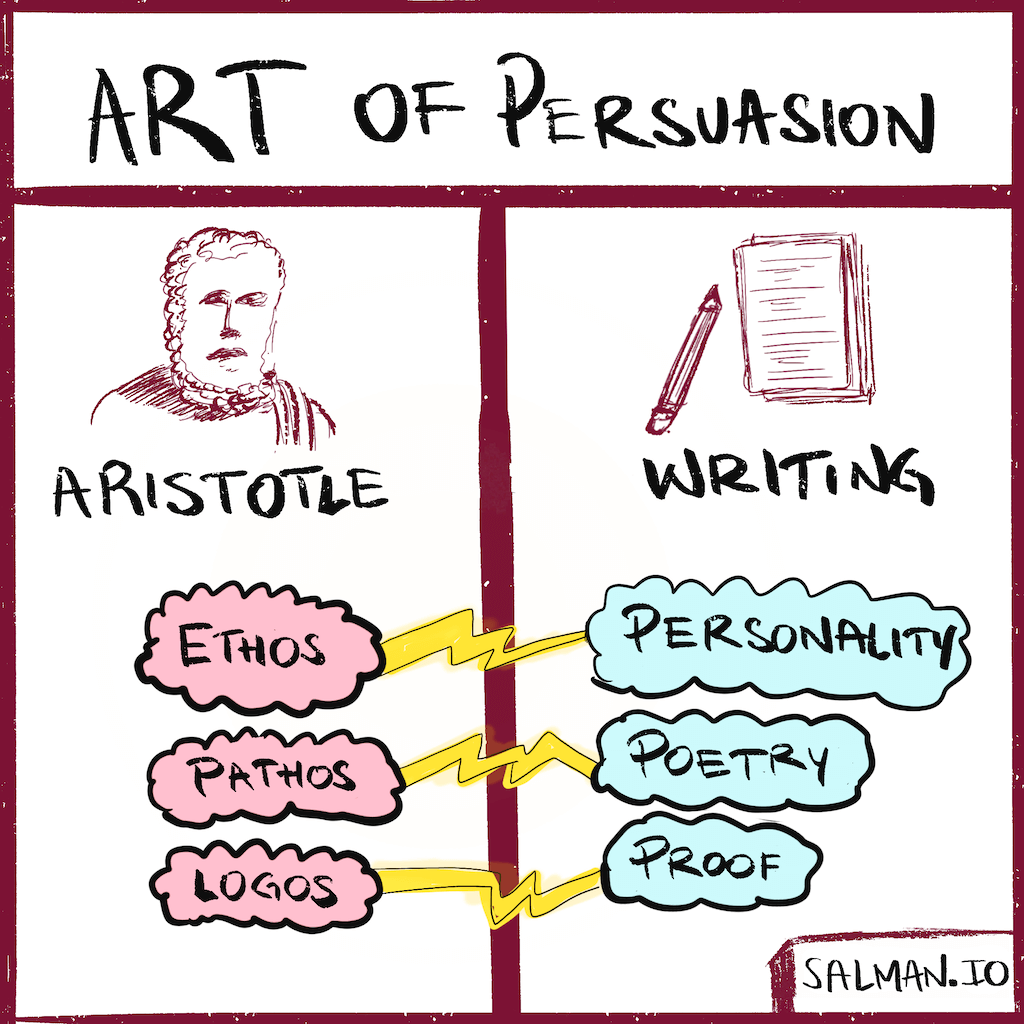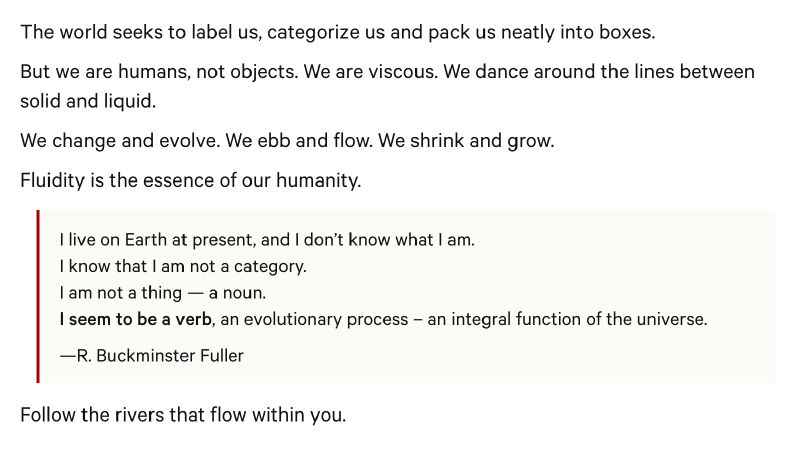The Art of Persuasion
Communication is hard. It’s tough to get right, and easy to get wrong. We have to make sure our message is clear, well-grounded, and delivered in such a way that it resonates with our audience.
It’s no use spending our energies on well-researched ideas if we don’t package them in a way that lands with others. We want our work to be seen, understood, and appreciated.
Thankfully, we have a great guide: Aristotle defined the three appeals of persuasion (Ethos, Pathos and Logos) as a framework for effective communication.
As valuable as they are, it can be tricky to remember a bunch of Greek terms. If we interpret each appeal’s intent, we can translate them into simpler terms. I think of them as the 3 Ps: Personality, Poetry and Proof:
Ethos (Personality) is an appeal to the authority or credibility of the presenter. It is how well the presenter convinces the audience that the presenter is qualified to speak on the subject.
Pathos (Poetry) is an appeal to the audience’s emotions. The terms sympathy, pathetic, and empathy are derived from it. It can be in the form of metaphor, simile, a passionate delivery, or even a simple claim that a matter is unjust.
Logos (Proof) is logical appeal or the simulation of it, and the term logic is derived from it. It is normally used to describe facts and figures that support the speaker’s claims or thesis.

In this essay, I’ll describe how Aristotle’s appeals of persuasion can be simplified and applied to our writing process. These techniques can be used for any form of communcation, but I’m going to focus on writing here.
I’ll be using an existing piece of writing as an example to analyze—an essay I wrote which went viral, Polymath Playbook. When the essay took off, I was humbled by the response, and curious to understand exactly what made the essay resonate so strongly.
Using Aristotle’s appeal as a framework, we can analyze different aspects of the essay to see how they were applied.
Ready? Set? Let’s get started!
Personality
My essay was about the polymath approach to life, but it was also a story of my own attempts to embrace that life. It wasn’t just a story, it was my story. Hearing my personal story made the essay more relatable to readers:
Early this year I read the book Range and realized that maybe being so wide-ranging wasn’t a bad thing after all. It could even be an advantage. It was eye-opening. But the stories felt very distant, you know? They were about people I would never meet. When I finally read your content, I felt relieved because you were very close - just a DM away.
I went on to describe the obstacles I faced exploring different pursuits. For example, I talked about how I struggled to fit into social groups with other ‘specialists’ — my experience with multiple pursuits made it more difficult to relate to my peers. This anecdote resonated with a lot of readers, many of whom noted that they never even realized the impact of their pursuits on their social lives.
For readers, the personalization effect changed the essay from just being my words into a description of their lives.
Writing about my own experiences proved to be quite challenging. I ran into a lot of personal resistance against talking so much about myself. My inner critic became especially prevalent when I was sharing how a polymath approach had helped me succeed by building mental models and differentiating myself.
At one point, I was tempted to take out the personal stories entirely. But I reminded myself of my intention to be authentic with my writing, and left them in. I’m really glad I did, as the personal components of the essay were by far the most resonant.
Poetry
I like to think of essays as art. I give myself a bit of artistic license with each essay. I’m no poet, but I’ve found that a little bit of effort in this department can go a long way.
In the conclusion of my polymath essay, I used phrases like “Fluidity is the essence of humanity” and “Follow the rivers that flow within you”. I also included a beautiful quote from R. Buckminster Fuller:

Even a few of these phrases seemed to really resonate with readers. I believe it gave them a language to express not just what they learned, but how it made them feel.
Proof
I provided historical background on the industrial revolution, and how it led to the proliferation of division of labor and specialization in society. In particular, many had not recognized how closely fundamental programs like healthcare were tied to employment.
This foundation provided readers with an understanding of the structures and incentives that discourage polymath lifestyles in modern society. Many had not made this connection before, or hadn’t considered the historical factors that led to the current situation. By recognizing these systemic factors, readers gained context for the problem grounded in the reality of their daily lives.
I believe the most impactful way to use this framework is to observe your own writing and recognize which appeal you’re trying to leverage. Once you identify it, you’ll be able to double down and ensure every word supports its appeal more effectively.
Each appeal is valuable on its own, but I believe they are most powerful when combined together. If you’re credible but boring, no one listens to you. If you’re inspiring but illogical, no one believes you.
Serve a balanced diet of all three appeals. You’ll convince your audience and inspire them along the way.
Thanks to all the readers who shared their feedback on the polymath essay, and special thanks to Patrick for helping me connect them to Aristotle’s ideas. Also, thank you to Juan David, Adam, Avthar and Rishi for their feedback on a draft of this essay.